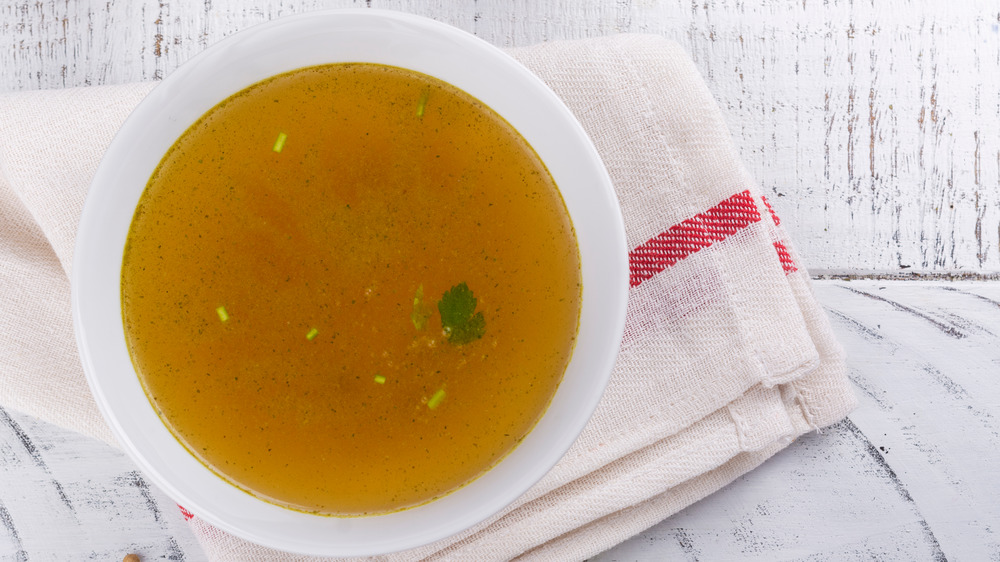Why You Should Think Twice Before Trying The GAPS Diet
If you've done any internet sleuthing on treating digestive issues or even mental health issues, you may have run across something called the GAPS diet. It stands for Gut and Psychology Syndrome and is the brainchild of Natasha Campbell-McBride, M.D., according to Women's Health. She is a neurologist and nutritionist who believes a whole host of health conditions, ranging from acne to schizophrenia to autoimmune disorders, are caused by bad bacteria flourishing in the gut. According to Insider, Campbell-McBride postulates that the bacteria produce substances that get into the bloodstream, a condition known as leaky gut, and cause damage to our internal systems.
But the diet is difficult to follow and, more importantly, it's unproven, according to experts. Registered dietician Tamara Duker Freuman told Women's Health, "To say these conditions are (1) caused by a leaky gut, (2) that specific foods we eat cause a leaky gut, and that (3) this protocol identifies the foods which cause your gut to leak is a series of unfounded, non-evidence-based claims layered on top of one another."
What does the GAPS diet require?
GAPS is an elimination diet that involves six distinct stages. The first is to remove all foods except homemade soup stock from fish, poultry, and meat, and homemade yogurt or kefir, according to U.S. News & World Report. In the second stage, add in raw organic egg yolks as well as and stews and casseroles containing meat and vegetables. Add fermented vegetables or sauerkraut juice to soup stock, and eat probiotic foods like kombucha and kimchi. For stage three, add mashed avocado into soup stock, specially-made pancakes, and small quantities of fermented vegetables. In stage four, add grilled meats and fresh-pressed juice. You can also try eating a bit of specially-made bread. Cooked apples and raw vegetables are added during stage five, and raw apples, fruit, and honey are included in stage six.
This portion of the diet must progress very slowly and can take 18 months to two years. After that time, foods like potatoes and grains can be slowly reintroduced, according to Insider.
But all this work runs counter to current medical thinking that a well-balanced diet with fiber included is the best way to balance the gut (per Molecular Metabolism). There are other elimination diets that are proven to help digestive problems, but so far GAPS is not one of them.


